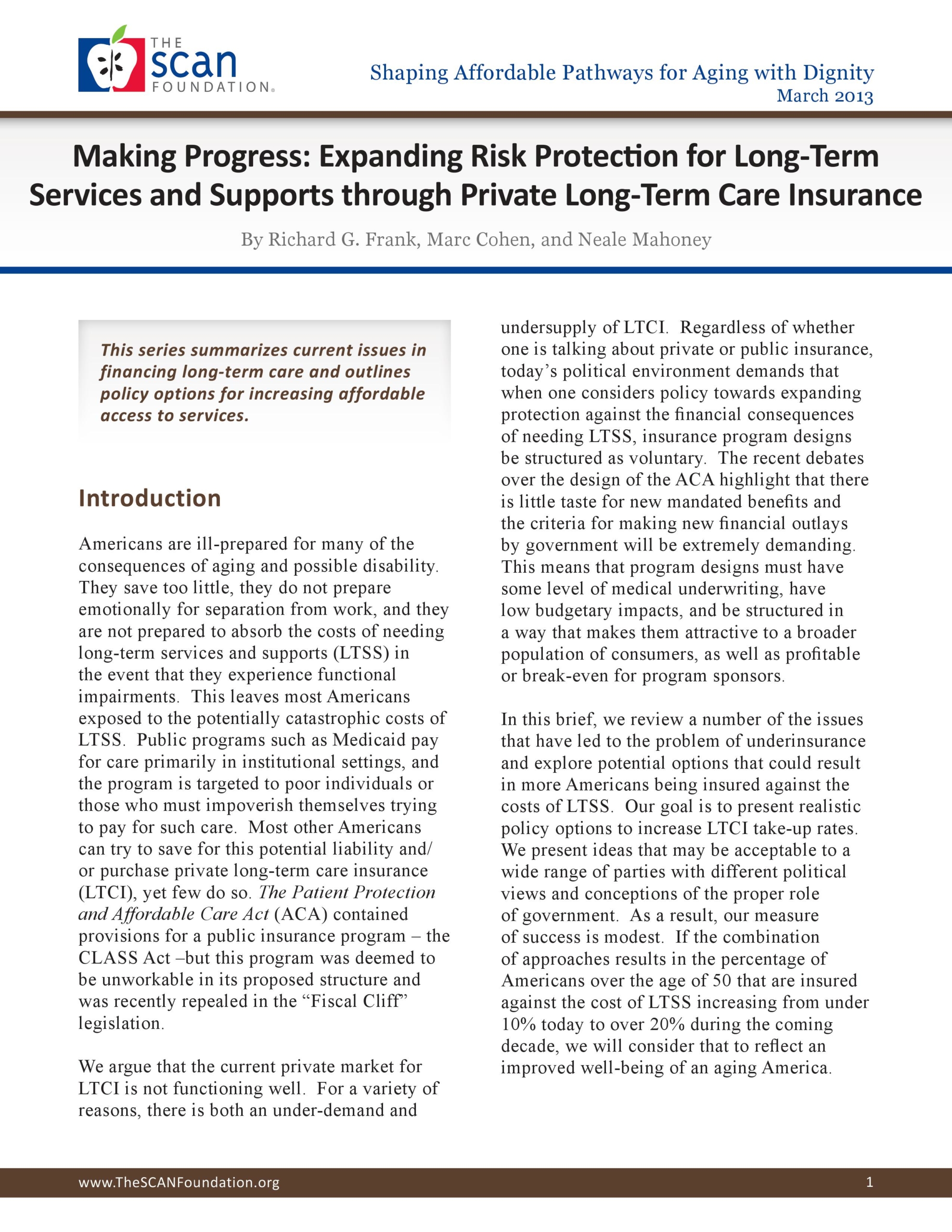Making Progress: Expanding Risk Protection for Long-Term Services and Supports through Private Long-Term Care Insurance
summary
This brief series summarizes current issues in financing long-term care and outlines policy options for increasing affordable access to services.
Date Updated: 03/20/2013Introduction
Americans are ill-prepared for many of the consequences of aging and possible disability. They save too little, they do not prepare emotionally for separation from work, and they are not prepared to absorb the costs of needing long-term services and supports (LTSS) in the event that they experience functional impairments. This leaves most Americans exposed to the potentially catastrophic costs of LTSS. Public programs such as Medicaid pay for care primarily in institutional settings, and the program is targeted to poor individuals or those who must impoverish themselves trying to pay for such care. Most other Americans can try to save for this potential liability and/or purchase private long-term care insurance (LTCI), yet few do so. The Patient Protection and Affordable Care Act (ACA) contained provisions for a public insurance program – the CLASS Act –but this program was deemed to be unworkable in its proposed structure and was recently repealed in the “Fiscal Cliff” legislation…
Download the publication for all visuals and complete references.
Continue Reading
This policy brief provides background on the historical development of benefit eligibility triggers in the private long-term care insurance market. Understanding how these triggers came into being can provide important information to those charged with implementing the CLASS Plan.
This policy brief provides information about how long-term care insurers implement benefit eligibility triggers in the private insurance market. The way in which companies have operationalized benefit eligibility triggers can inform the development of regulations for the CLASS Plan.
This policy brief provides information on the benefit eligibility assessment process in the private long-term care insurance industry. It focuses on how long-term care insurers use the information in the adjudication process, who is involved in the process, and how activities of daily living and cognition are assessed.


